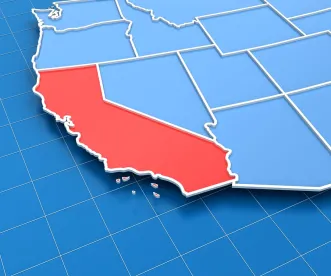On March 16, 2019, six Bay Area counties issued Shelter-in-Place Orders (“the Orders”) limiting the operation and activities of residents and businesses in Alameda, Contra Costa, Marin, San Francisco, Santa Clara, and San Mateo Counties. The purpose of the Orders is to slow the spread of COVID-19.
When Do the Orders Take Effect?
The Orders take effect at 12:01 am on March 17, 2020, and end at 11:59 pm on April 7, 2020, or until extended, rescinded, amended or superseded.
What do the Orders Require?
-
All individuals living in the six counties are to shelter at their place of residence.
-
All businesses with a facility in any of the six counties, except “Essential Businesses” and those considered “Essential Infrastructure,” are required to cease all operations at their facilities. Non-Essential Businesses may continue operations only using employees or contractors who work remotely. On-site employees at Non-Essential Businesses may only perform “Minimum Basic Operations” tasks.
-
Generally, residents may only leave their homes to engage in specified health and safety activities, to work for or obtain services at a healthcare operation, to operate an Essential Business or essential governmental function, to provide Minimum Basic Operations services, to travel to or from educational institutions to receive materials for distance learning, or to receive meals or any other related services. The Orders preclude most other travel including travel on foot, bicycle, scooter, motorcycle, automobile or public transit.
-
The Orders preclude all public and private gatherings occurring outside a household or living unit.
-
Individuals are required to practice social distancing whenever outside of their residence.
What Businesses are Essential Businesses?
The Orders provide exemptions for a myriad of employers operating “Essential Businesses.” Essential businesses include: healthcare operations and businesses that provide essential infrastructure; stores that sell groceries and products necessary to maintain the safety, sanitation, and essential operation of residences; businesses that cultivate food, including farming, livestock and fishing; businesses that provide food, shelter, and social services; newspapers, television, radio, and other media services; gas stations, auto-supply, auto-repair, and related facilities; banks and related financial institutions; service providers who provide services necessary for maintaining the safety, sanitation, and essential operation of residences, such as plumbers, electricians and exterminators; businesses providing mailing and shipping services, including post office boxes; educational institutions; hardware stores; laundromats, drycleaners, and laundry service providers; restaurants and other facilities that prepare and serve food; businesses that supply products needed for people to work from home; businesses that supply other essential businesses with the support or supplies necessary to operate; businesses that ship or deliver groceries, food, goods or services directly to residences; airlines, taxis, and other private transportation providers providing transportation services necessary for Essential Activities; businesses that provide home-based or residential care for seniors, adults, or children; businesses that provide professional services, such as legal or accounting services, when necessary to assist in compliance with legally mandated activities; and childcare facilities providing services that enable employees exempted from the Orders to work as permitted.
For purposes of the Orders fitness and exercise gyms are not healthcare operations and will be required to close. And while restaurants may remain open, they are required to limit service to delivery or carryout only.
What are “Minimum Basic Operations”?
Non-Essential Businesses may only continue “Minimum Basic Operations” at their facilities. Minimum Basic Operations are necessary activities related to security, maintaining the value of inventory, processing payroll and benefits, and ensuring that employees may work remotely. Any employees on-site for Minimum Basic Operations activities must comply with Social Distancing requirements such as maintaining at least six-foot distance between other individuals.
What is Essential Infrastructure?
Essential infrastructure includes public works construction, construction of housing, airport operations, water, sewer, gas, electrical, oil refining, roads and highways, public transportation, solid waste collection and removal, internet, and telecommunications systems (including the provision of essential global, national, and local infrastructure for computing services, business infrastructure, communications, and web-based services).




 />i
/>i

